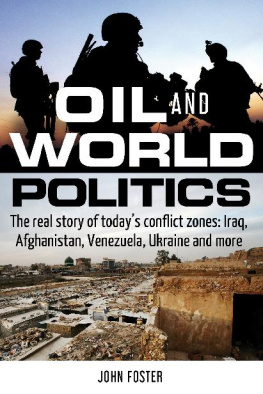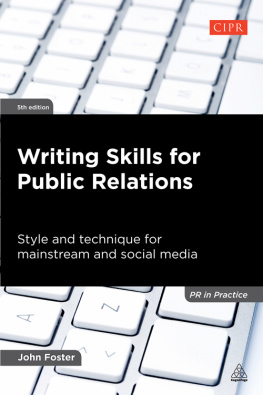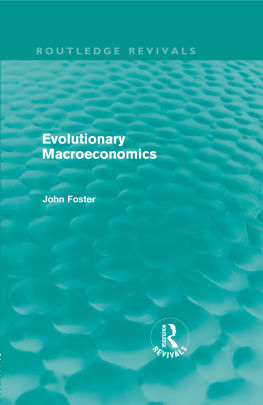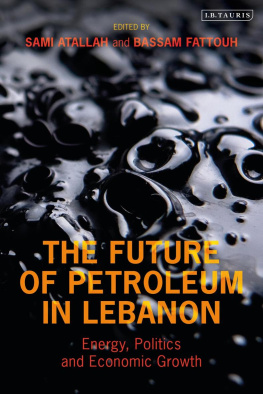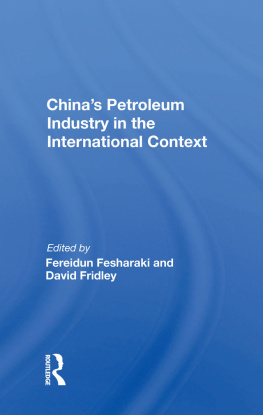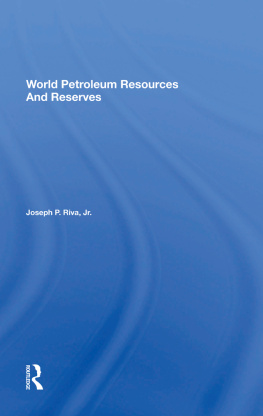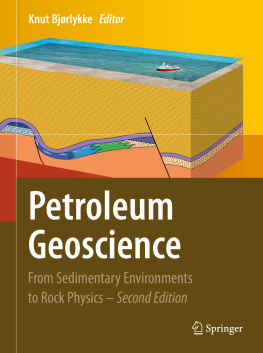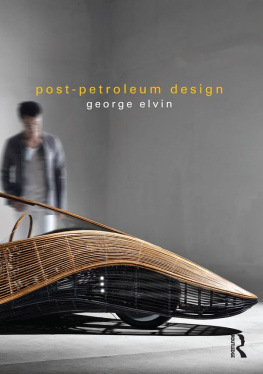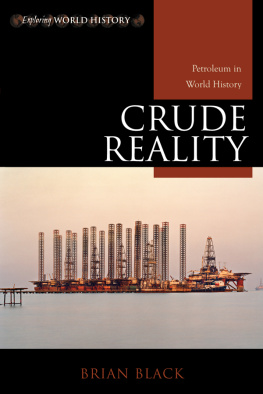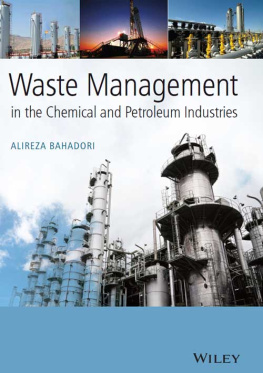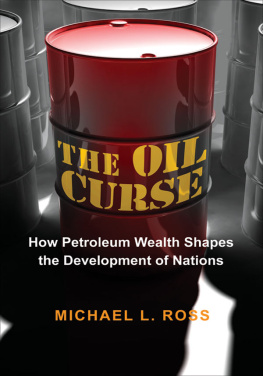Foreword
About a decade ago, I was attending a series of lectures on world affairs in Kingston, Ontario. The speakers extolled all the wonderful things Western leaders were doing for the world. I was a bit sceptical whether the non-Western world was as accepting as they insinuated. At one point, the organiser saw me rolling my eyes in the back row. He nabbed me during the coffee break. So you didnt agree with the speaker? he asked.
He speaks from a Western perspective, I replied. What about the underlying motivations, the Petroleum Game? To my surprise, he promptly asked me to give a lecture. I equivocated: Im an economist; I couldnt do that. On the way home, I told my wife, Millie Morton, about the conversation. She said: You can do it; Ill help you.
Thats how this book began. For a couple of years, we had been struggling to understand the daily news in a small group setting. Why was Afghanistan so important? Why was Iraq invaded and destroyed? The reasons for war didnt make sense. Millie and I had both worked in international development. I have a background in the economics of petroleum. She is a sociologist, skilled in asking probing questions, simplifying complex issues, and finding the essence of the story. She became my ongoing collaborator.
At that time, 21 Canadians had lost their lives in Afghanistan. Official pronouncements about finding bin Laden, promoting democracy and sending girls to school seemed laudable but were they the real reasons for massive military expenditures? We dug beneath the surface of government pronouncements and newspaper headlines. We read original documents, newspapers from countries around the world, analyses from think-tanks and speeches given by high-level people. Our investigations led us to find a petroleum issue openly discussed in Asia, but rarely mentioned in the West. In Afghanistan, there was a petroleum story plans for a natural gas pipeline with geopolitical significance.
We worked hard to prepare a presentation that was clear, interesting and entertaining. The talk in November was an uncanny experience. When I began, I could have heard a pin drop. The audience included about 300 retirees from all walks of life, and they, too, wanted to discover what was going on. They asked questions about history, geography and culture. They wanted insights beyond the news in mainstream media.
Three months later, I gave a similar talk to a foreign affairs group in Ottawa, including retired and serving diplomats, civil servants and parliamentarians. The response was equally encouraging. Paul Dewar, MP, Opposition foreign affairs critic, acclaimed the research. He later referred to it in a parliamentary debate on Afghanistan. Then, at the request of the Canadian Centre for Policy Alternatives, I wrote a short paper entitled A Pipeline through a Troubled Land. It documented long-standing US plans to build a gas pipeline from Turkmenistan, through Afghanistan, to Pakistan and India, and link the four countries together. Shawn McCarthy, energy reporter at the Globe and Mail , invited me to an interview in Ottawa. For two and a half hours, he asked detailed questions, admitting he had read all 82 of my endnotes. Later that week (June 19, 2008), my findings became banner headlines in the Globe and Mail : Pipeline Opens New Front in Afghan War.
Since then Ive documented petroleum stories in Iraq, Iran, Syria, Ukraine and other parts of the world. Could it just be a coincidence? The patterns from one country to another and the similarities over time suggested otherwise. The evidence of international rivalry over petroleum was overwhelming. The competition showed up periodically in policies, speeches and actions. Thats why I call whats going on the Petroleum Game.
Petroleum stories vary from one country to another. They may be about the petroleum resources of a country. Or they may relate to a countrys strategic location as a route for pipelines or a place in close proximity to significant sea routes. Petroleum is only part of the story. Sometimes there are historic animosities, other valuable resources or power-seeking goals. Nevertheless, petroleum deserves public attention. It is a vital resource for all modern economies, a source of enormous wealth and power.
Given the acknowledged connections between petroleum and climate change, understanding petroleum becomes critical to our future on Earth. Many vested interests support petroleums current role. The links between petroleum and ongoing conflict and misery merit attention, too. This connection is almost as old as the discovery of petroleum itself, but rarely discussed openly as events are unfolding.
I know a bit about conflict. I was a child in London during the Blitz of World War II. I saw the destruction caused by bombs landing close to my home. During the war, Churchill met with his cabinet in underground rooms that are now a museum. In the War Cabinet Rooms, the uniforms on the mannequins, maps stuck on the walls and the secret telephone for transcontinental calls to President Roosevelt evoke a time I remember well. I slept many nights in the bomb shelter my father built in our garden or under the heavy Morrison table where my parents pretended that was a normal thing for a family of five to do.
I visited the War Cabinet Rooms with members of my family a few years ago. Sixty years had passed since World War II. Yet when the 1940s air raid siren sounded in the museum, I also heard the sound of the V-1 a low throb stealing through the dark sky. I held my breath, waiting for the boom of the landing. My discomfort forced me to leave the museum. The sounds of war still disturbed my well-being. Around the world, millions of others share my experience when they hear drones circling overhead or shells landing nearby.
During the Suez Crisis of 1956, I served in the Royal Navy on the first tank landing craft to arrive in Port Said. Politics were never discussed in the wardroom, so I only learned later what had really happened. After Egypts President Nasser nationalized the Suez Canal, Britain and France, with Israeli support, planned quietly to take back the canal. An Anglo-French enterprise had run the canal for 87 years. It was a strategic transit route for oil, with two-thirds of Europes oil passing through it. Britain viewed it as a lifeline to its imperial interests. Eventually the invasion was revealed to be a stitch-up, with only a few people in each country knowing the plan. As sailors, we were pawns in the game.
In this book, my intent is to bring together little-known stories linking petroleum and conflict. From diverse reliable sources (replete with endnotes), I have drawn a big picture of what has been going on in recent years. The book is based on public information and on understandings that evolved during my years as an energy economist with two international banks and two oil companies. Much of my working life was spent bridging cultures. With suitcase and briefcase, I visited more than 35 countries around the world, meeting officials and struggling to understand petroleum. My job was economic analysis.
Now, with the experience of a lifetime, I want to share my understandings of both petroleum and conflict. In a world focused on soundbites and crises, the big picture is often obscured. Thats why Ive included backstories cultural, geographical and historical information relevant to the situation in 2018. Featured are countries experiencing recent military interventions and their consequences Afghanistan, Iraq, Libya, Syria. Included also are countries experiencing punishing sanctions or political interference, such as the training of opposition leaders or the funding of rebellion. Each chapter could be a lengthy book, but my goal is to convey the essence of competing narratives while showing how the Petroleum Game is being played in many countries simultaneously.

